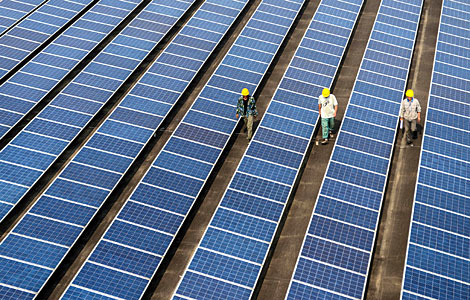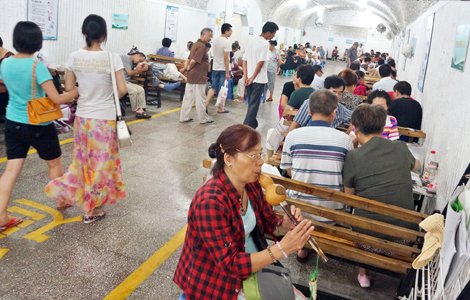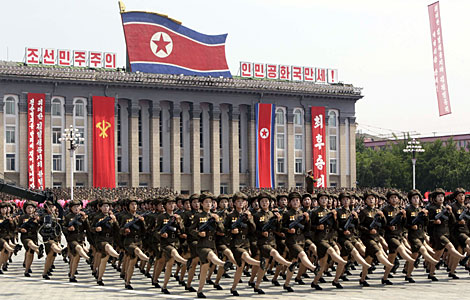China gets the reforms it needs
Updated: 2013-07-29 07:09
By Syetarn Hansakul (China Daily)
|
||||||||
When China's new leadership under President Xi Jinping and Premier Li Keqiang took office, expectations were high that it would accelerate reform to take the economy to greater heights. Before the leadership took office, there were concerns that, without reform the Chinese economy would stagnate or run into the middle-income trap.
The Xi-Li leadership has not disappointed; it has wasted no time in taking one reform initiative after another. The leadership's objective is to make the Chinese economy stronger and to adapt to changing circumstances at home and abroad. The leaders discourage practices that will harm China in the long run, and are steering the economy toward a more efficient use of resources and capital allocation. These objectives are of course desirable, but the prescription and the process to get the desired results may not always be easy to take.
The new leadership recognizes the challenges of reform and has attempted to manage the expectations by sticking to a GDP growth target of 7.5 percent in 2013, the same as last year but lower than the 8 percent in the few years preceding 2012. According to latest reports, the government has actually set 7 percent GDP growth as the bottom line for tolerance of an economic slowdown.
This shows the leaders are not interested in artificially supporting the economy. Delivering a speech on May 13, Li said: "To achieve this year's targets, the room to rely on stimulus policies or government direct investment is not big - we must rely on market mechanisms." And he warned that relying on government-led investment for growth "is not only difficult to sustain, but also creates new problems and risks".
This message is loud and clear: Unless significant new downside risks that can threaten employment on a large scale emerge a big fiscal stimulus package will not be forthcoming. This stance seems to have dented businesses' confidence to some degree, although the impact is likely to be temporary until expectations are adjusted to the new paradigm.
Furthermore, to increase transparency and reduce systemic risks in the financial sector, the government has taken measures to discourage opaque lending practices which have not been properly captured under the banking system. Earlier threats to financial sector stability were identified as a property bubble and local government financing vehicles, and were put under surveillance and acted upon.
This year, "shadow banking", including wealth management products (WMPs), has been under the radar. Rapid growth of some non-bank lending activities in total social financing (TSF), particularly high since 2010, has caused concerns. This is not to say that all shadow banking activities or WMPs are suspicious.
In a country as big as China where there is tremendous unmet demand for banking services and financing, shadow banking and WMPs have a useful role to play. They play a complementary role to banks and are a necessary component of an effective financial system. What is lacking is transparency and proper accounting in some cases or products.
In the process of improving transparency and governance of the TSF segment, one of the consequences, intentional or otherwise, was deleveraging as market participants adjusted to the new rules of the game. Market participants learned in June that easy liquidity cannot always be taken for granted. Though the People's Bank of China can hold a different view from other money market participants on what the appropriate level of liquidity should be, the episode should serve as an important lesson for banks and regulators alike as they prepare to take steps to liberalize interest rates.
On top of these changes, the Xi-Li leadership has introduced many other far-reaching reforms and taken firm steps to stamp out corruption, which are highly laudable moves. Reforms in the administrative and hukou (house registration) systems, energy tariff and resource pricing are among the many measures already taken, and they will lead to profound changes in the way China operates.
Moreover, the recent lifting of the qualified foreign institutional investor quota from $80 billion to $150 billion represents a major step toward capital account liberalization. It demonstrates the government's confidence in its ability to maintain macroeconomic stability under a more open capital account.
We believe that if China is successful in implementing these reforms, it will continue to enjoy many more years of strong growth and prosperity, as well as further enhance its role as a global growth driver. As the experiences of other countries or regions that have remained stuck in recession for many years indicate, stimulus alone - fiscal and monetary - can only go so far in boosting growth.
Meaningful changes must be made from the root upward. In this regard, attempts to compare "Likonomics", Li's economic policy, with "Abenomics", Japanese Prime Minister Shinzo Abe's economic policy, will not be very productive. China and Japan are in very different phases on the economic cycle. China has been growing strongly for the past few decades while Japan has been mired in recession or sluggish growth since the 1990s. Their policy prescriptions are therefore very different as they seek to achieve different objectives.
The similarity is that both recognize the significance of structural reform, without which the end results are unlikely to be realized, regardless of how big the stimulus is or how long it lasts.
The author is a senior economist with Deutsche Bank.
(China Daily USA 07/29/2013 page12)
Most Viewed
Editor's Picks

|

|

|

|

|

|
Today's Top News
Experts advise CEOs on how to make it in the US
Israeli-Palestinian peace talks to resume
Latest US-China talks should smooth the way
Audit targets local government debt
30 people killed in Italy coach accident
Brain drain may be world's worst
Industry cuts cloth to measure up to buyers' needs
Reckless projects undermine the prosperity hopes
US Weekly

|

|















